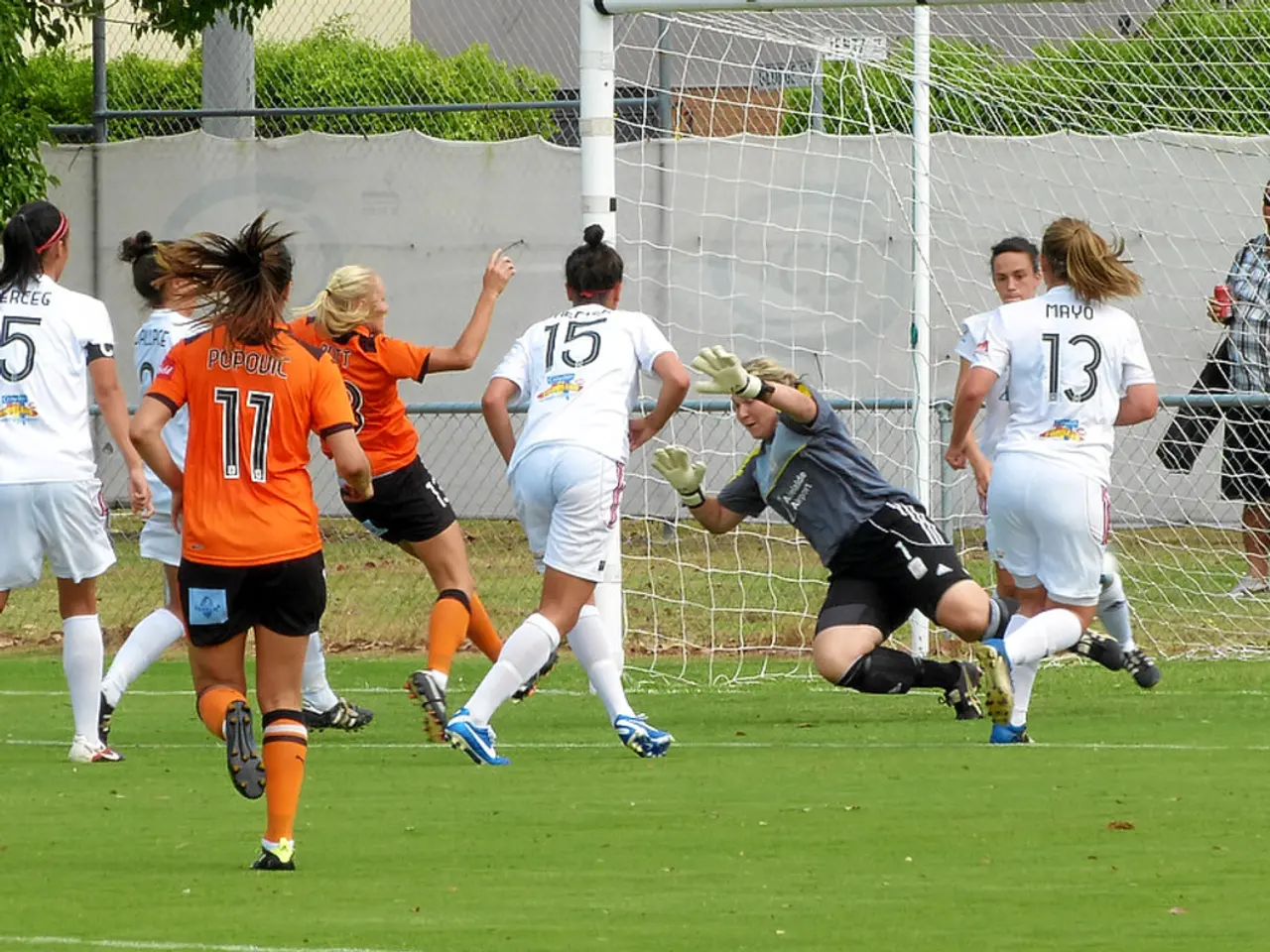Elite women's football clubs dominate the rosters of UEFA Women's Euro squads
The UEFA Women's Euro 2025 is set to be a landmark event, with a significant concentration of talent evident in the participating teams. This trend is particularly noticeable in clubs like FC Barcelona, which boasts a total of 17 players in the tournament.
According to a recent study, 368 players in the UEFA Women's Euro come from an elite group of 16 European clubs, indicating a growing investment in women's football by major clubs. This investment is reflected in the increased number of players from "super clubs," which has surged from 74 in Euro 2017 to 132 in Euro 2025.
The tournament is also marked by a structural reliance on a limited number of institutions, which may constrain the diversity and resilience of development pathways. However, leagues across Europe are represented, with a total of 109 clubs from 22 leagues in 19 different countries participating.
Clubs from the English Women's Super League provide the most players (72) to the UEFA Women's Euro. The English second tier, the WSL2, has 11 representatives playing for their national sides, the majority of them in the Wales squad. Italy's Serie A Femminile is the second-best represented league with 51 players.
Notable leagues such as the French Division 1 Féminine, Italian champions Juventus, English champions Chelsea, and German champions FC Bayern also have a significant presence. Juventus and Chelsea each have 14 players at the UEFA Women's Euro, while FC Bayern has 16.
FC Barcelona leads the way with the most representatives (17) at the UEFA Women's Euro, with 11 in the Spain squad and one each in the Netherlands, Norway, Poland, Portugal, Sweden, and Switzerland. Laia Aleixandri, a member of the Spanish squad, recently signed with FC Barcelona from Manchester City.
Compensation for releasing players to their national teams is part of UEFA's "club benefit programme." Clubs will receive a minimum of $15,480 (€13,140) for each day in which one of their players will be in Switzerland for the tournament. This amount increases significantly if a club's team advances further in the competition. For instance, FC Barcelona will receive a minimum of $263,177 (€223,380) for their 17 representatives, which will rise to over $400,000 if Spain reaches the final.
The increased investment and emphasis on professional standards have led to better-coached teams and more competitive matches. Key players like Aitana Bonmati from Spain and Sydney Schertenleib from Switzerland are among the emerging talents, showcasing the depth and quality of the women's game.
While the men's European Championship still commands more global attention and financial resources, the gap is narrowing as women's football continues to grow in popularity and competitiveness. The women's game is now aiming to become a billion-euro industry by 2030, a testament to its growing significance in the world of football.
The National Women's Soccer League provides the most players from outside Europe (19) to the UEFA Women's Euro. The study also reveals a structural reliance on a limited number of institutions in the women's game, which may constrain the diversity and resilience of development pathways.
As the UEFA Women's Euro 2025 unfolds, it is clear that the women's game is experiencing a significant power shift, with the tournament likely to showcase the strengthened talent pool and competitiveness.
References: [1] UEFA (2022). UEFA Women's Euro 2025: Key facts and figures. Retrieved from https://www.uefa.com/womenseuro/news/newsid=2795103.html [2] UEFA (2022). UEFA Women's Euro 2025: The road to Switzerland and Italy. Retrieved from https://www.uefa.com/womenseuro/news/newsid=2794845.html [3] UEFA (2022). UEFA Women's Euro 2025: The clubs of the tournament. Retrieved from https://www.uefa.com/womenseuro/news/newsid=2795105.html [4] UEFA (2022). UEFA Women's Euro 2025: The players to watch. Retrieved from https://www.uefa.com/womenseuro/news/newsid=2795106.html
Football teams from various European clubs, including FC Barcelona, Juventus, Chelsea FC, Arsenal, Manchester United, FC Bayern, are preparing to showcase their talents in the UEFA Women's Euro 2024 and UEFA Women's Champions League, with WEURO2025 and the UEA Euro 2024 expected to be landmark events in sports. The increased investment in women's football by these major clubs is exemplified by the surge in the number of players from "super clubs," as reported in a recent study.







